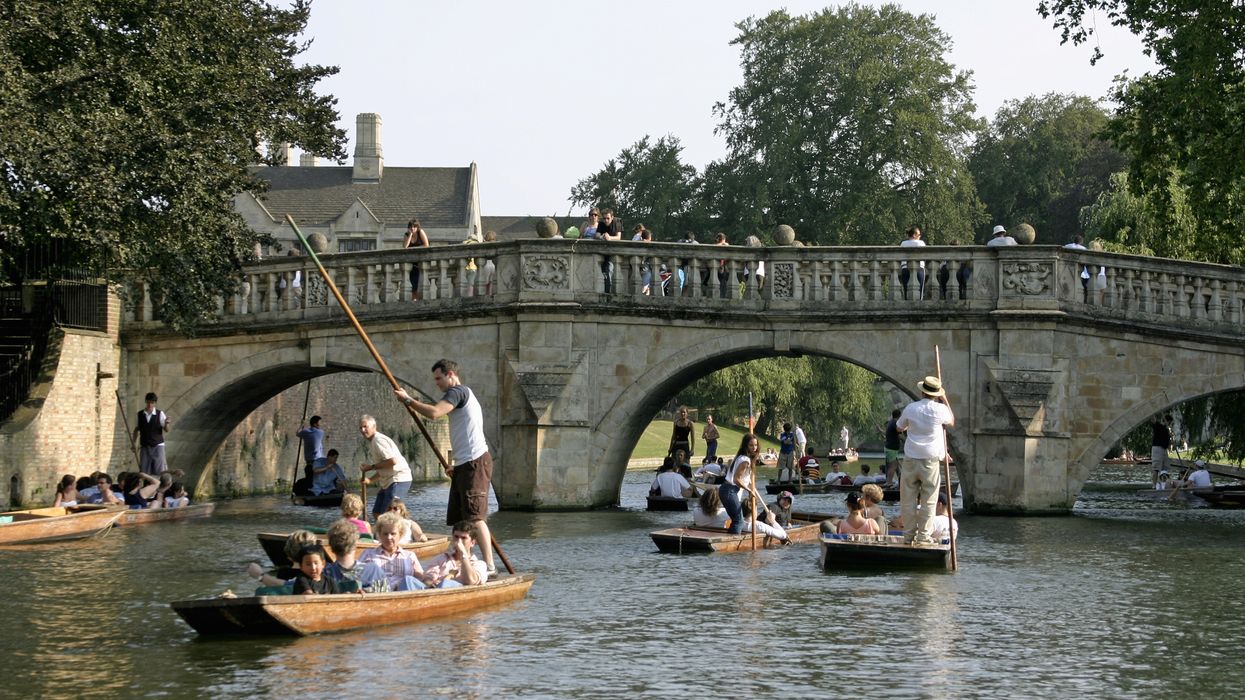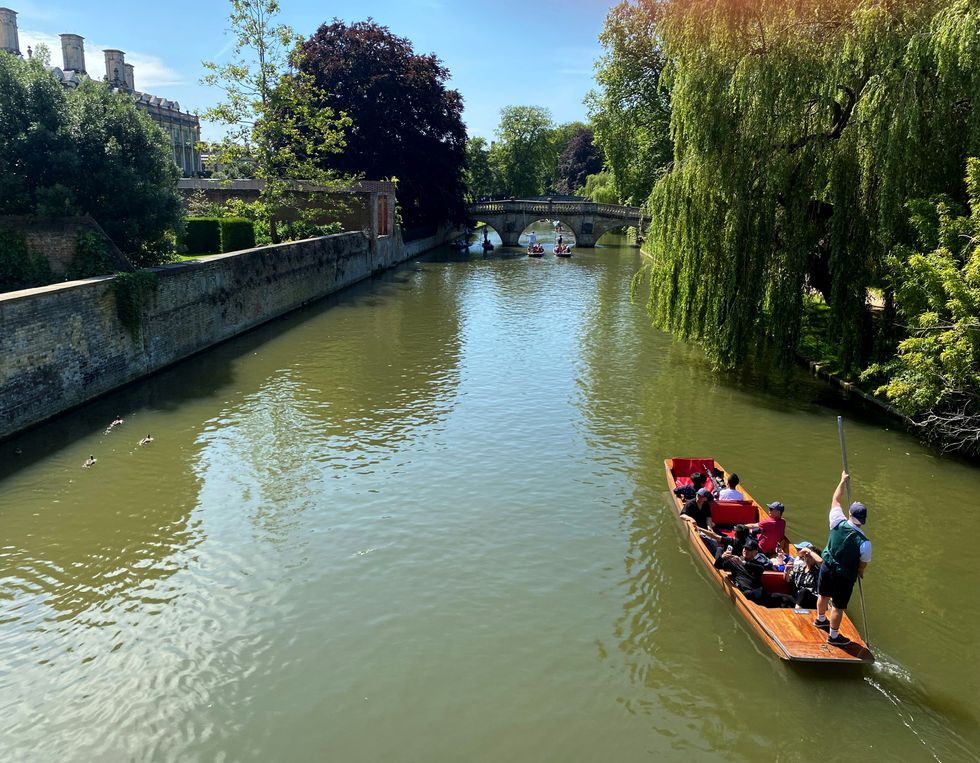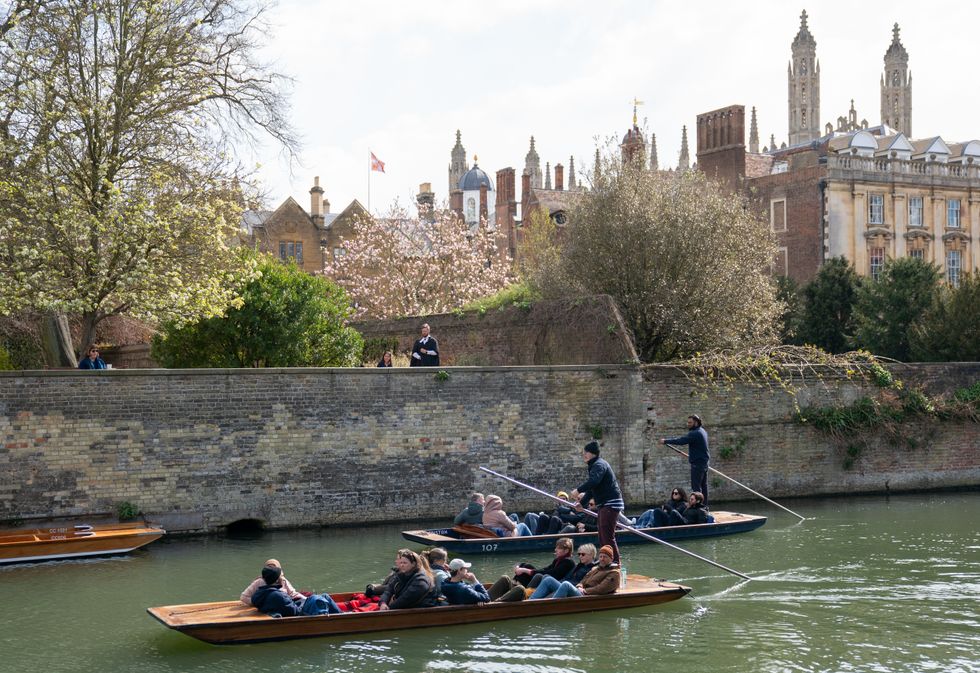Cambridge's historic punting tradition could be forced to stop for good in just 12 months

The Conservators of the River Cam (CamCon), which has overseen a six-mile stretch of the waterway since 1702, admits it is 'in crisis' | GETTY
As much as £15million could be needed to permanently protect the section of the River Cam that has become popular among locals and tourists alike
Don't Miss
Most Read
Trending on GB News
Cambridge's historic punting tradition faces extinction as the organisation managing the River Cam warns it could collapse within twelve months.
The Conservators of the River Cam (CamCon), which has overseen a six-mile stretch of the waterway since 1702, admits it is "in crisis" and may become "unviable and inoperative" without urgent intervention.
The crisis centres on two deteriorating lock islands that control water levels along the river.
Their potential collapse threatens to drain the Backs—the scenic stretch passing King's College and other landmarks—leaving only what officials describe as "a measly, muddy trickle" incapable of supporting the flat-bottomed boats that have carried visitors for over a century.
Jesus Lock island, situated where punting begins, faces "imminent danger of collapse" according to a report from last year.
David Goode, CamCon's chairman, told The Times: "If it was imminent a year ago it's not going to get better."

Cambridge has become known for punting among tourists
|PA
The second threatened structure is Baits Bite Lock, several miles north along the Cam, which has remained closed for more than twelve months, leaving boat owners stranded on that section of river.
"On the river stretch along the Backs between Mill Pond and Jesus Lock the water level is held artificially high by the sluice gates at the lock," Goode explained.
Without these structures maintaining water levels, the shallow stretch showcasing Cambridge's most famous views would become unnavigable.
The consequences extend far beyond the punting industry. College rowing clubs would find themselves unable to train as water levels become unpredictable or the river becomes choked with weeds.

Thousands travel to Cambridge every year to take to the iconic river
|PA
"There would be a lot of consequences: the loss of punting, exposing of the foundation of college walls and the devastating impact to the appeal and economy of Cambridge," Goode stated.
The tourism sector, which relies heavily on punting as a signature Cambridge experience, would suffer significant losses.
The picturesque views of the Bridge of Sighs and the Wren Library from the water draw thousands of visitors annually.
Rowers from the university's numerous college clubs, most of which maintain facilities along the river, would be left without access to their traditional training grounds if water levels cannot be properly regulated.
CamCon estimates that temporary stabilisation work would cost approximately £1.5million for each lock island, whilst permanent replacement would require £10-£15million per structure.
The organisation, operating with just three full-time staff members, declared in a written update to residents this month that it cannot undertake significant repair work "without the threat of insolvency".
Parliamentary legislation restricts CamCon's fundraising capabilities, limiting income primarily to vessel fees ranging from £315 annually for paddleboards to £3,000 for 20-metre boats.
The organisation seeks changes to its funding model to enable contributions from local residents, businesses and the university.
More From GB News










